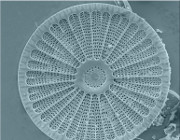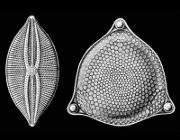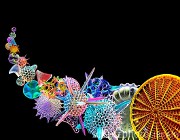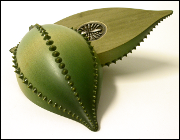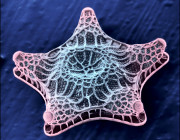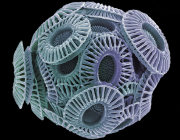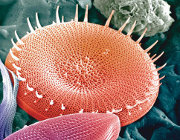Home :: List of Publicly Available Datasets :: Skeletonema marinoi FE60
Skeletonema marinoi FE60
Downloads:
| Principle Investigator(s) | Giovanna Romano |
|---|---|
| External sample ID | FE60 |
| NCGR Sample ID | MMETSP1040 |
| Sample accession number | CAM_SMPL_002594 |
| Assembly accession number | CAM_ASM_000412 |
| Combined Assembly Name | N/A |
| Genus | Skeletonema |
| Species | marinoi |
| Strain | FE60 |
| Clonal | Yes |
| Axenic | No |
| Prelim. NCBI Taxon ID | 267567 |
| 18S rRNA | |
| Importance of organism and transcriptomes | Skeletonema marinoi is a successful centric planktonic marine diatom responsible for spring blooms in North Adriatic sea and in many coastal areas around the world. It has been shown that diatoms produce a class of compounds, the oxylipins, that have been found to negatively impact copepod reproduction with possible negative consequence on the flow of energy through the marin food chain. Definition of the transcriptome of two clones of Skeletonema marinoi showing different levels in oxylipin production, will help to understand the physiological mechanisms underlying the activation and the modulation of oxylipins methabolism in diatoms. |
| Additional citations and references | |
| Environmental Data | |
| Primary citation for organism's characterization, if available | Sarno, D., Kooistra, W. H. C. F., Medlin, L. K., Percopo, I. and Zingone, A. (2005), DIVERSITY IN THE GENUS SKELETONEMA (BACILLARIOPHYCEAE). II. AN ASSESSMENT OF THE TAXONOMY OF S. COSTATUM-LIKE SPECIES WITH THE DESCRIPTION OF FOUR NEW SPECIES. Journal of Phycology, 41: 151?176. doi: 10.1111/j.1529-8817.2005.04067.x |
| Latitude | 43.5 |
| Longitude | 14.5 |
| Depth (m) | 2 |
| Salinity (psu) | 37.0423 |
| Temperature (ºC) | 18 |
| Collection date | 25-FEB-05 |
| Sample collection site | Adriatic Sea |
| Sample material (e.g. "seawater," "sediment," etc.) | Seawater |
| ENVO term for habitat - primary term | Acquatic: marine |
| Habitat description | coastal waters, surface layer |
| Habitat | marine habitat |
| Country | ITALY |
| Experimental Data | |
| Date of experiment | 15-SEP-11 |
| Growth medium | f/2 amended sea water |
| Temperature (ºC) | 20 |
| Salinty (psu) | 36 |
| pH | 8.2 |
| Light (µmol photons / m2 / sec) | 100 |
| Day portion of day:night cycle in hours | 12 |
| Night portion of day:night cycle in hours | 12 |
| Nitrate (μmol/L) | 883 |
| Phosphate (μmol/L) | 36.3 |
| Silicate (μmol/L) | 107 |
| Trace elements (total) (nmol/L) | 24500 |
| Investigation type | Eukaryotes |

